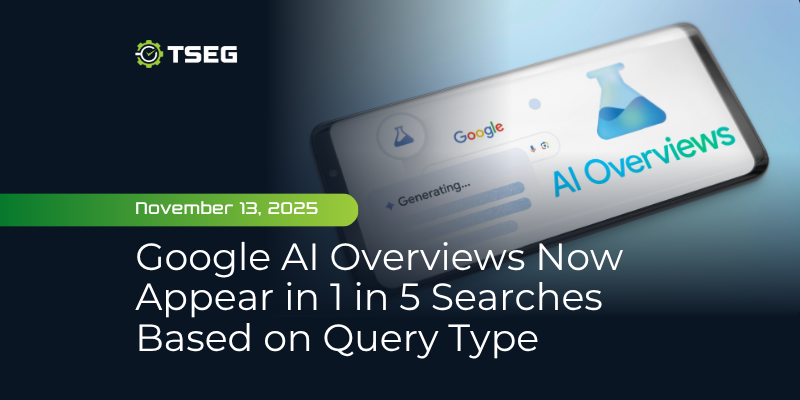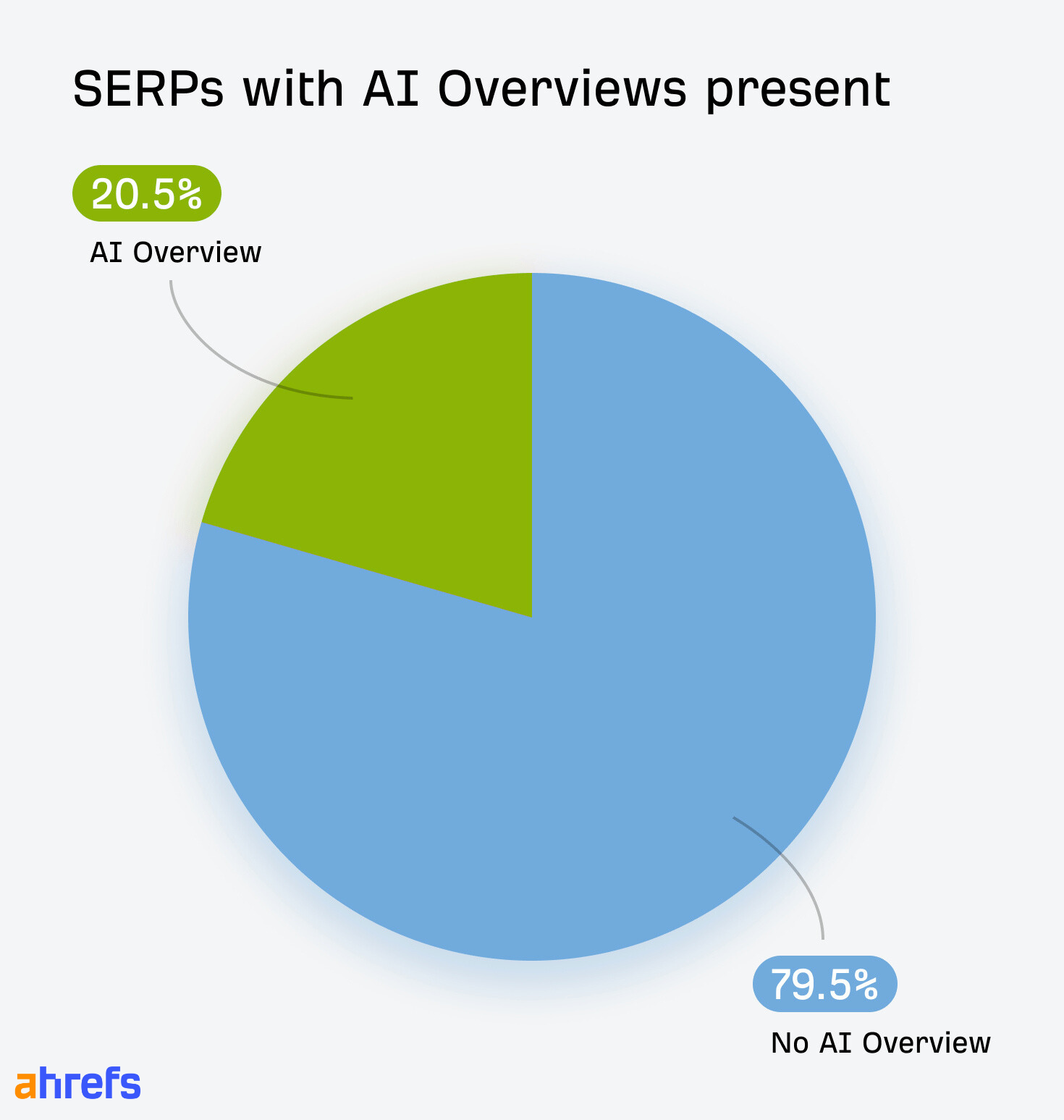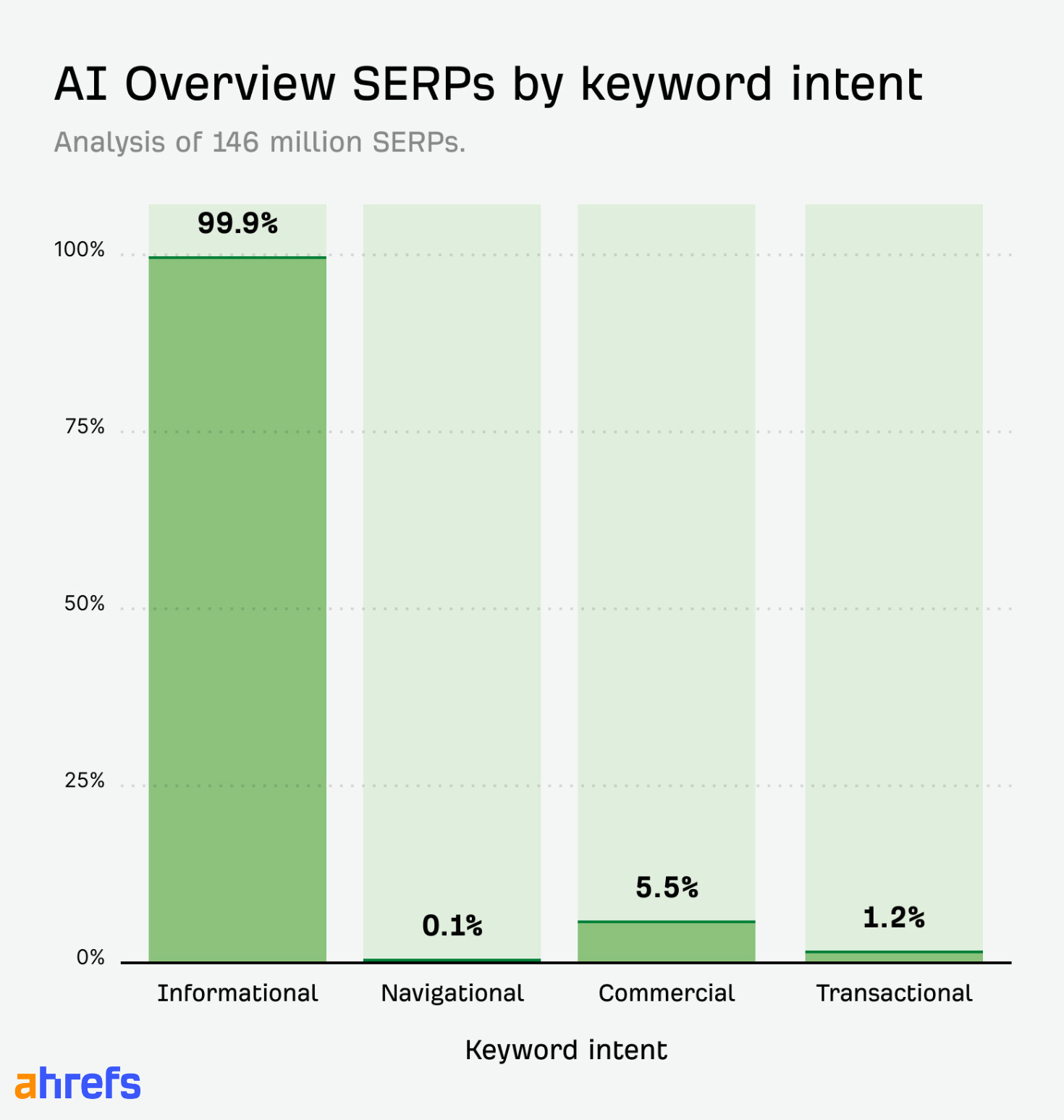Google AI Overviews Now Appear in 1 in 5 Searches Based on Query Type
Posted on Friday, November 14th, 2025 at 2:26 pm
 A Study on Google’s AI Overviews
A Study on Google’s AI Overviews
A new study from Ahrefs offers a rare look at how often Google’s AI Overviews appear in search results. The research examined 146,000,000 search entries and evaluated 86 different keyword traits to understand when these summaries are most likely to surface. AI Overviews appear on 20.5% of all keywords.
However, there’s an enormous variation behind that percentage. Some keyword categories show up 60% more often. Others fall under 2%. This shows that Google applies AI Overviews very selectively.
The study confirms that AI Overviews tend to favor longer informational searches, especially ones framed as questions. They appear far less often on topics connected to fast moving news or location specific intent. This selectivity creates new considerations for organic search in legal.

What Prompts an AI Overview to Appear
Ahrefs found that length and intent are the most reliable signals behind whether an AI Overview shows up. The data confirms that Google is far more likely to display these summaries when the query resembles a research prompt rather than a simple lookup.
Single word searches triggered AI Overviews just 9.5% of the time. But when a search included seven or more words, the number jumped to 46.4%. That increase suggests Google’s system is built to activate when the query demands a more in-depth answer.
Question phrasing showed an even stronger effect. When a user typed in a question, Google returned an AI Overview nearly 58% of the time. When the search was not phrased as a question, the appearance rate dropped to 15.5%.
Intent made the biggest difference. The study classified keywords by what the searcher was trying to do. Informational queries made up almost every instance of an AI Overview. Out of all the times a summary appeared, 99.9% were triggered by someone simply trying to learn. By contrast, keywords aimed at buying something or navigating to a specific site almost never brought up AI Overviews. Transactional queries showed a 2.1% rate. Commercial keywords came in at just 4.3%. Navigational terms barely registered at all.

The takeaway here: Google is using AI to respond primarily to education focused questions. These results help explain why some pages see AI summaries eating into their traffic while others remain untouched.
What Suppresses AI Overviews
Google pulls back AI Overviews on certain types of searches. News-related queries show the lowest presence, with only 6.3% triggering an AI response. Local searches follow the same trend at 7.9%, compared to 22.8% for non-local queries.
Sensitive categories are also limited. Gambling, adult, and violent content rarely receive summaries. Even drug-related terms, the highest among this group, appear at just 12.6%.
Branded keywords see lower activity. Only 13.1% trigger AI Overviews, while non-branded terms appear at nearly double the rate, 24.9%.
Cost-per-click shows no influence. High or low, keyword price does not predict whether AI will show up.
Why This Data Should Be On Every Law Firm’s Radar
Firms investing in organic search should recheck where their traffic is most exposed. The data confirms that AI Overviews appear most often on informational content. This includes a large portion of law firm websites, especially pages that explain legal processes or answer client questions.
Practice area pages, FAQ content, and educational blog posts are the most frequent triggers. These are often the same pages firms count on to rank for long form searches and convert traffic into leads. When AI Overviews appear above them, visibility and click-through rates can fall even if rankings hold.
Firms need clarity on which parts of their content are affected and which are not. Without that insight, any content strategy becomes a guessing game.
Planning Ahead
AI Overviews follow clear patterns tied to query length, intent, and topic. That makes it possible to evaluate how much of your content is at risk.
Law firms should audit their pages to see which ones are built around long-form, informational queries. These are the most likely to trigger summaries that reduce visibility in search.
TSEG helps firms adjust to these changes. We track how AI affects search results and use that data to guide strategy. Whether it means reworking content, shifting focus to safer query types, or strengthening paid campaigns in low-risk categories, we make sure firms do not fall behind.
Search is changing. TSEG makes sure your firm stays in front of it. Contact us today.